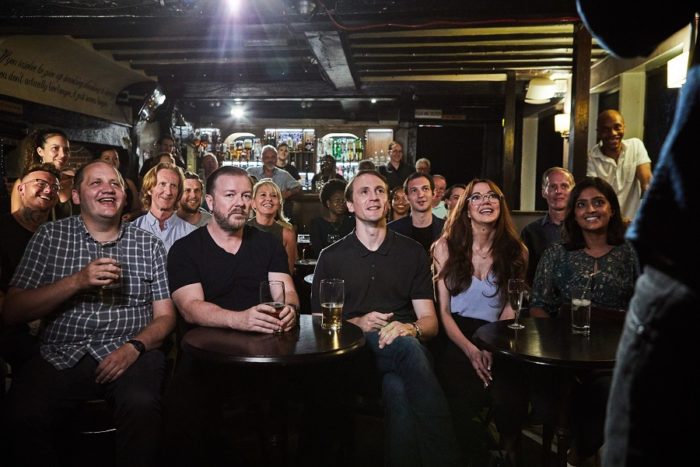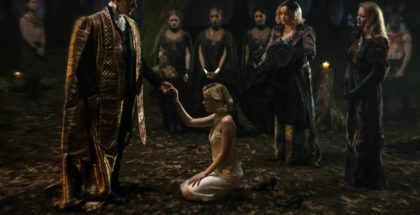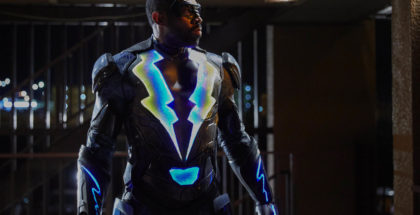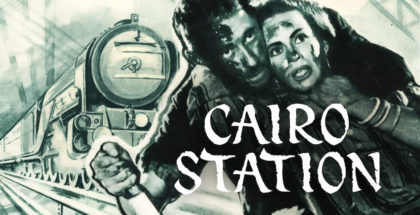Interview: Tony Way and Mandeep Dhillon talk Netflix’s After Life
David Farnor | On 08, Mar 2019
This weekend sees the release of After Life, Ricky Gervais’ new Netflix series (read our review here). The six-part comedy-drama follows Tony (Ricky Gervais), a man who had a perfect life. But after his wife Lisa dies, Tony changes. After contemplating taking his own life, he decides instead to live long enough to punish the world by saying and doing whatever he likes from now on. He thinks it’s like a Super Power — not caring about himself or anyone else — but it turns out to be tricky when everyone is trying to save the nice guy they used to know.
Starring alongside Gervais is Tony Way as Tony’s best-friend Lenny and Mandeep Dhillon as Sandy, a new colleague at the local newspaper where he works. We sat down with Tony and Mandeep to talk their characters, working on a comedy about depression and what’s currently on their watchlist.
How did you get involved with After Life?
MD: Ricky mentioned it to me that he was writing a part and asked if I would play it and that was it, really! [Laughs]
TW: Yeah, same for me, I got a call late 2017 from Ricky saying ‘I’ve got this idea for a sitcom and there’s a part I think you’d be good for’ and he just laid it out and it was very intriguing and I was probably already going to say yes, anyway! He didn’t have to sell it to me.
You’ve been have very varied careers. What draws you to a project?
TW: To be honest, you don’t always get the opportunity to massively choosy! Something might tickle your fancy and you think ‘I’ll give it a go’. I think I’ve been lucky, I don’t think I’ve had many stinkers in my time! Game of Thrones, I didn’t know a lot about that when I did that, and it just ended up being the biggest show ever, you know? You just never know, really! But then Murder in Successville, you choose something like that because you know the people doing it, you know it’s going to be funny, and it’s similar to Ricky – you know it’s going to be fun, it’s going to be good, and you’re going to have fun creating a character.
MD: Yeah, I think it’s the same, really! You get a feeling when you read something and your gut tells you whether you want to do it. Sometimes, you don’t know why, but you’ve got to follow the feeling.
TW: Also, sometimes, you’re a jobbing actor, you need money! Early on, you’re just happy to work, to be in the frame…
MD: Yeah.
TW: You get choosier as you go on!
Did Ricky use the word ‘sitcom’ when he described it to you?
TW: That’s a good question! I’m not sure the word ‘sitcom’ was used.
MD: No.
TW: He called and gave me the pitch and said what happened, the first five minutes of the show, and I don’t think he used the word ‘sitcom’. I presumed it would be funny, but that’s a very good point actually. I hate the word ‘dramedy’, but I guess that’s what it is. But I think it’s a lot funnier than your typical dramedy, it’s got loads of jokes in it. This has got all the tropes of a sitcom – the sit, which is the newspaper office, and the comedy, which is what Ricky says, but it’s got this dark bit, the being depressed and mourning, you know.
Do you find you have a preference between comedy and drama? Or try to alternate to the other after you’ve done one?
MD: I enjoy comedy, I think that’s just spending most of your time doing something that’s much happier than doing just dramas and stuff. But I don’t mind drama, either!
TW: I treat them bnoth the same. I don’t know if that’s because in dramas, I’m often playing someone who’s got probably more comedy to them, so I get do some sort of ‘thing’. I like both, but I think people can get very snooty about comedy, which is a lot harder, in a way, than drama. Comedy has to do everything a drama does, but then has to make it funny too.
Did you have much chance to shape and develop your characters?
MD: We’ve kind on been on board since the early stages, we had workshops and everything. Because Ricky had us in mind, they’re very real characters, it’s very natural. We haven’t written it, but I got to name my character, that was fun! [Laughs]
TW: We were doing workshops and stuff, so we were allowed to help create the characters a bit. But Ricky very much had ideas in mind. He said ‘Lenny’s like a labrador, he’s loyal but simple and more interested in where his meals come form’, that kind of thing. But there are little bits of dialogue here and there we chucked in and Ricky’s quick to say ‘Yeah, that’s funny, we’ll use that’. Ricky’s about naturalism so much that if something just pops out your mouth and it seems right, then it stays.
How did the workshop process work?
TW: The workshop thing was very informal – it was just sitting around in Ricky’s office, really, talking about anything but the script sometimes! I think Episode 1 had 20 pages, Episode 2 had 10, Episode 3 had 5 pages, so they were outlines. And you’d go away, and you wouldn’t think about it for a bit, and there’d be more script. Ricky was half using us as a sounding board, I think, half he just wanted to hear us say the lines, see what we thought a bit. So by the time we got on set, we all knew our characters very well. The script was solid, but it was all open a bit, there was leeway to add stuff to come up with stuff on the day. There were some scenes where it just said ‘something funny happens here’ and he’d sort of leave it to Diane [Morgan] or David [Earl] to do something. There are bits where I’m showing you how to use a computer…
MD: Oh God, yeah!
TW: And that’s not in the script. It basically just said ‘Lenny being boring’. There are little bits like that you can only do on the day unless you’ve got a very specific thing in mind.
So do you feel closer to the character to the project as a result?
TW: Definitely yeah. I feel a bit of ownership of the character. Ricky wrote the character, but I feel like I’ve been consulted, which is nice. And you really feel you’ve got somewhere by the end of the day – Ricky’s very quick and doesn’t take too long if you don’t need to. Some things, you can spend a week on one stunt, but it’s nice to go home and think ‘we’ve really got something’ and hammered home a few scenes.
MD: Yeah, it is. I really loved playing Sandy, and because it’s such a natural kind of role, a lot of the time, I have to do a lot of reacting to them, which is all just me genuinely reacting, because they’re all so great, so you do feel more connected to the role. I mean, I got to name her!
It’s being released all-at-once on Netflix. How do you feel about the changing TV landscape?
TW: I think it was already starting to happen before the technology made it happen, weirdly. The biggest shows I watched a few years ago, I watched back-to-back on DVD box sets. I think people who watched this did it in one go. When I watched it, I expected it take a week to watch and I did it in two nights. You could watch this as an extended film quite happily, I think. There is an almost Groundhog Day-like thing where it’s the asme pattern in every episode, which, when you watch it back-to-back, works quite nicely. In terms of thoughts of it as a business model, I don’t know, it seems to be doing alright, doesn’t it!
MD: As a viewer, I’m enjoying it!
TW: I’ve never watched as much TV as I do now. And I used to watch a lot of telly!
And it’s global too – everyone’s watching it at the same time
TW: It’s amazing,. I don’t hink I’ve done anything that’s had that before. Even the biggest films, everyone’s given a few weeks to get to the next country to talk about it.
MD: It’s instant, isn’t it?
TW: It’s instant! The thought that everyone around the world could be watching it at the asme time is sort of mad.
MD: I hadn’t actually thought about that!
TW: And they’re also watching it on their own time, which is weird. And the other thing is that people will find it later on as well. That’s a real big thing – people find Game of Thrones five or six years after it came out. Things don’t just go away, or disappear in the back of a video store, they’re sort of always there.
Do you binge or watch things weekly?
MD: I binge, for sure!
TW: I binge chunks, so I would do… if it’s an hour-long drama, I can’t do more than 3 or I start to forget what’s happened! If I watch stuff with my girlfriend, we have to stretch it out, because she works like a normal person, she’s not an actor, just sitting around all day! So we have shows we share and I have my own ones that I can watch when I want.
What’s on your watchlist
MD: I want to watch Pure, that’s on my watchlist.
TW: I’m in the middle of watching The Americans, which is brilliant. And also I watched… documentaries are insane on Netflix. I watch Abducted in Plain Sight, which is extraordinary. It had me saying ‘What the fuck?’ every two minutes! Insane.
After Life is available on Netflix UK, as part of an £9.99 monthly subscription.





















